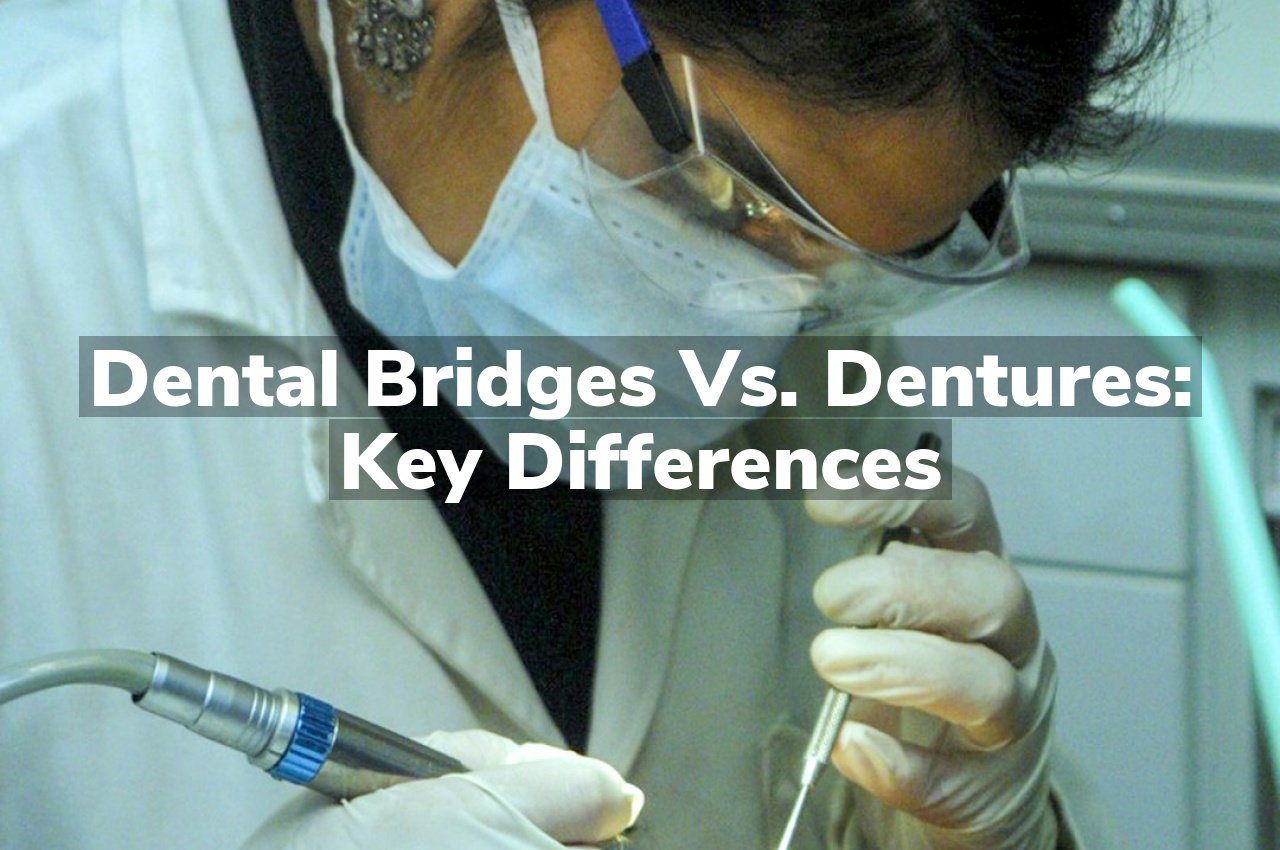Are you wondering about the key differences between dental bridges and dentures? While both serve the purpose of replacing missing teeth, dental bridges are typically used to replace one or a few teeth by anchoring to existing teeth, whereas dentures are designed to replace many or all of your teeth and rest on the gums.
Definition and Types
When considering options for replacing missing teeth, dental bridges and dentures are two prevalent choices that cater to different needs and preferences. A dental bridge is a fixed prosthetic device used to fill the gap created by one or more missing teeth. It is anchored onto adjacent teeth or implants for support. For a deeper understanding of how dental bridges work and the various types available, you might find Understanding Dental Bridges: An Overview helpful. On the other hand, dentures are removable appliances that can replace missing teeth and are designed to rest on the gums. They come in two main types: complete dentures, for when all teeth are missing, and partial dentures, for when some natural teeth remain.
The choice between dental bridges and dentures often depends on several factors, including the number of missing teeth, the health of adjacent teeth or gums, personal preference, and budget. Each option has its own set of advantages and considerations. For instance, bridges are typically used when there are fewer teeth to replace and the surrounding teeth are healthy enough to support the bridge. Dentures, however, can be a solution for individuals who have lost most or all of their teeth. Understanding the fundamental differences between these two dental restoration methods is crucial for making an informed decision that best suits one’s oral health needs.
Durability and Longevity
When considering dental restoration options, understanding the durability and longevity of dental bridges versus dentures is crucial. Dental bridges are typically made from strong materials like porcelain or ceramics, which are fused to metal for added strength. This construction allows them to last for many years, often over a decade, with proper care. On the other hand, dentures, which can be full or partial, are made from a combination of materials including acrylic resin and sometimes metal attachments. While modern dentures are more durable than ever, they generally require replacement or adjustment every 5 to 8 years due to wear and changes in the jaw and gums.
The choice between dental bridges and dentures significantly impacts the long-term functionality and aesthetics of one’s smile. Each option has its own set of considerations in terms of how long they will last and how they will serve the individual’s needs over time. For those exploring dental bridge options, Monrovia’s Premier Dental Bridges Clinic offers comprehensive services to meet your needs.
Comfort and Fit
When considering dental bridges and dentures, understanding the differences in comfort and fit is crucial. Dental bridges are typically secured in the mouth by attaching to existing teeth, offering a stable and snug fit that many find comfortable for daily wear. On the other hand, dentures are designed to sit on the gums, which can lead to adjustments in fit over time as the shape of the gums and jawbone changes. Each option presents a unique experience in terms of comfort and how well they fit within the mouth, influencing an individual’s ability to speak, eat, and engage in daily activities with ease.
Maintenance Requirements
When comparing dental bridges and dentures, one of the key differences lies in their maintenance requirements. Dental bridges are typically fixed in the mouth and require a similar oral hygiene routine to natural teeth, including regular brushing and flossing. On the other hand, dentures are removable and necessitate a more specialized cleaning routine. They must be taken out, cleaned with specific solutions, and soaked overnight to maintain their shape and hygiene. Understanding these maintenance needs is crucial for individuals to make an informed decision based on their lifestyle and ability to commit to the care of their dental solution.
For those seeking more information on dental health options, Healthy Life Dental is a great resource. Visit Monrovia Dentist for further details.
Aesthetic and Functional Differences
When comparing dental bridges and dentures, it’s crucial to consider both aesthetic and functional differences. Aesthetically, dental bridges often provide a more natural and seamless appearance, as they are designed to blend in with the existing teeth. On the functional side, bridges are fixed in place, offering a stable and secure solution that allows for ease of eating and speaking. Dentures, while also designed to mimic the look of natural teeth, are removable, which can lead to adjustments in fit over time. Functionally, they require more maintenance but can replace a full set of teeth, which is not an option with bridges. Both options aim to restore the appearance of one’s smile and improve oral functionality, but the choice between them depends on individual needs and circumstances.
Conclusion
Choosing between dental bridges and dentures depends on individual needs and preferences. For more insights, read reviews on Google Maps. Ready to discuss your options? Call us at (626) 256-3368 today.





